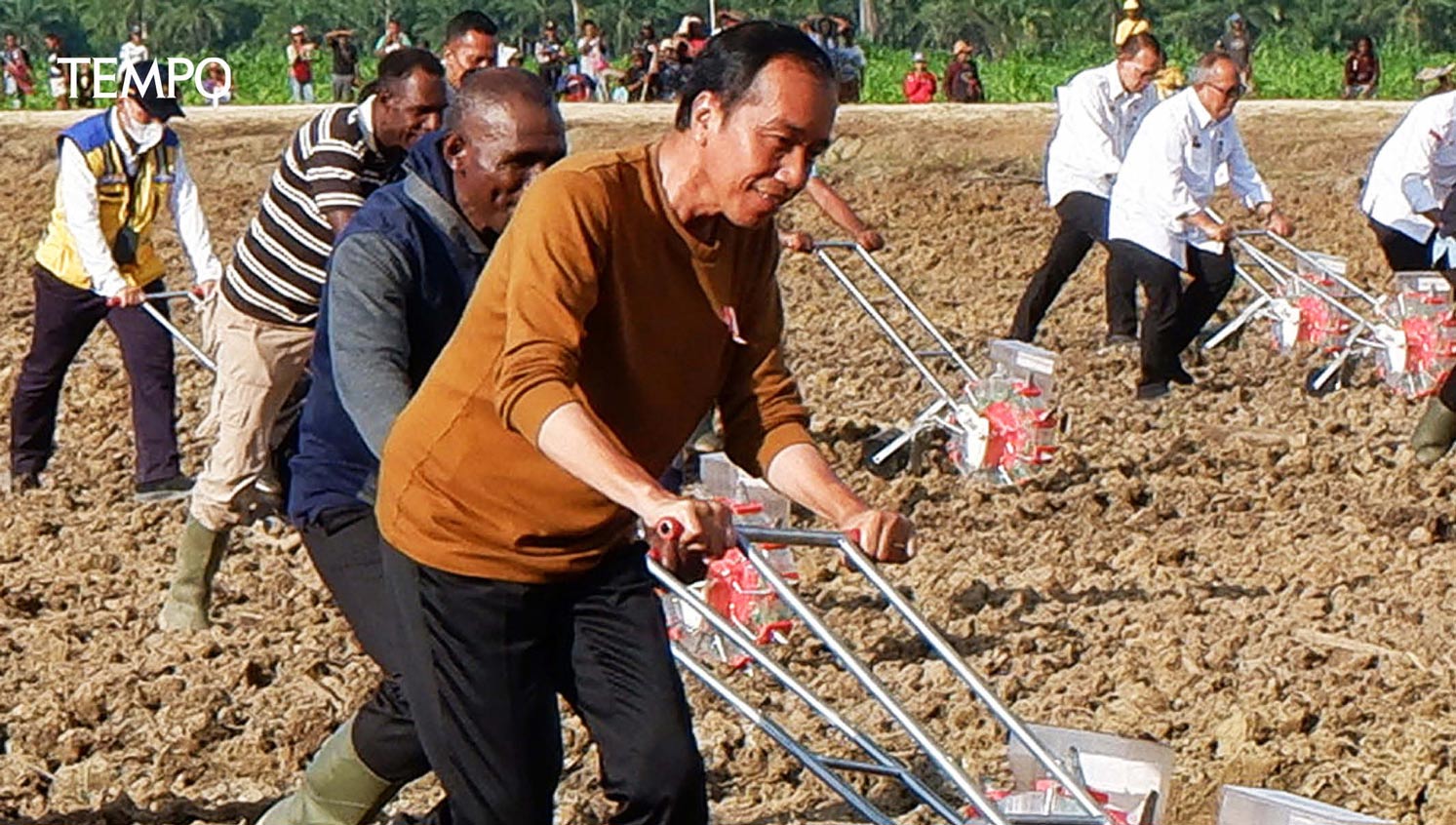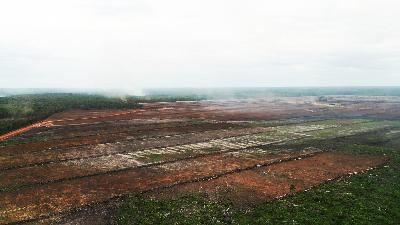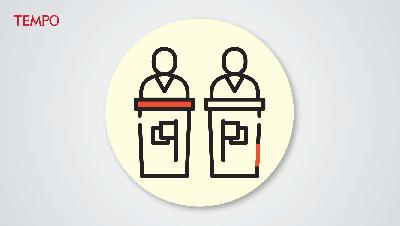The Problem with Our Food Estate Program
Monday, September 23, 2024
The food estate projects in Merauke are at risk of failure. There are suspicions about the way the projects are shared out.
arsip tempo : 174593779937.

THE government’s plan to establish a food estate in Merauke Regency, South Papua, is like hearing an old song being played yet again. There are many doubts about the chance of success of the plan to create rice fields and sugarcane plantations on swamps and peatlands, and it may even damage the natural environment.
President Joko Widodo and president-elect Prabowo Subianto are accelerating the food estate programs in Merauke, covering a total of 2.29 million hectares, or 70 times the area of Jakarta. The government claims that the strategic national project, which is divided into five clusters, will bring about self-sufficiency in rice by 2027, as well as meeting the demand for sugar and bioethanol a year later.
It is undeniable that Indonesia needs food stocks to head off a future food crisis. The area of land under cultivation continues to decline, while dependence on imports and poor farming productivity could lead to shortages of food supplies in markets. Long-term food security needs careful planning.
But the planning of the Merauke megaproject was anything but careful. One key aspect relates to the necessity to have a business model that ensures the program is sustainable and does not damage the environment.
On the ground, the projects to establish rice fields and sugarcane plantations are proceeding separately. Last year, Jokowi launched the 1.11-million-hectare sugarcane plantation and bioethanol industry program in south Merauke. Through Bahlil Lahadalia, the then Investment Minister and Coordinator of the Investment Coordinating Board, the government tried to attract investors to implement the program.
Meanwhile, Prabowo, through Agriculture Minister Amran Sulaiman, accelerated the 1.18-million-hectare rice field program to northern Merauke. Andi Syamsuddin, alias Haji Isam, a businessman from South Kalimantan, was invited to clear the land. Isam brought in thousands of excavators with a total cost of Rp4 trillion. At the end of July, the first wave of heavy machinery from China arrived in Wanam village.
Without any clear criteria to select partners, it is easy to suspect that the involvement of Isam in the food estate project is part of the sharing out of the pie in return for political favors. The same is true of the inclusion of members of the consortium in the sugarcane plantations. They are tycoons who supported Jokowi in the first or second periods of his administration.
The government should learn from the failures during the administration of President Susilo Bambang Yudhoyono. In 2010, Yudhoyono rolled out a similar program, the Merauke Integrated Food and Energy Estate, or MIFEE, covering around 1.2 million hectares. After more than a decade, this project failed to achieve the target of self-sufficiency. Domestic and foreign investors all pulled out.
One reason for this is that these investors had to deal with the complexities involving land procurement, including issues of customary lands and indigenous rights. Demarcation of land often triggered horizontal conflicts. Meanwhile, poor infrastructure led to soaring production and post-harvest costs. Production was low because not all of the region was suitable for rice, sugarcane or corn. Furthermore, acidic soil led to increased costs for land management because of the need for copious quantities of fertilizer.
Moreover, another food estate project in Gunung Mas, Central Kalimantan, has led to more problems than profits. The clearing of 600 hectares of natural forest for cassava plantations by the Defense Ministry in 2020 triggered the release of 250,000 tons of carbon emissions. And during the rainy season, the deforestation led to flooding.
In Merauke, a strategic environmental study was only conducted after the government had decided on the location. However, this should have been carried out at the start of the project, because it relates to carrying the capacity of the environment as well as commodities and land suitable for planting. The haphazard way in which the program was drawn up shows the government’s lack of caution in regard to the management of natural resources.
Finally, Prabowo should not be in a rush to continue this plan. Food self-sufficiency is a long-term aim, not a quick fix project for one or two years. The repeated failures of many food estate projects readily fuels suspicions that they were intentionally drawn up with the sole aim of providing profits for Jakarta cronies.











